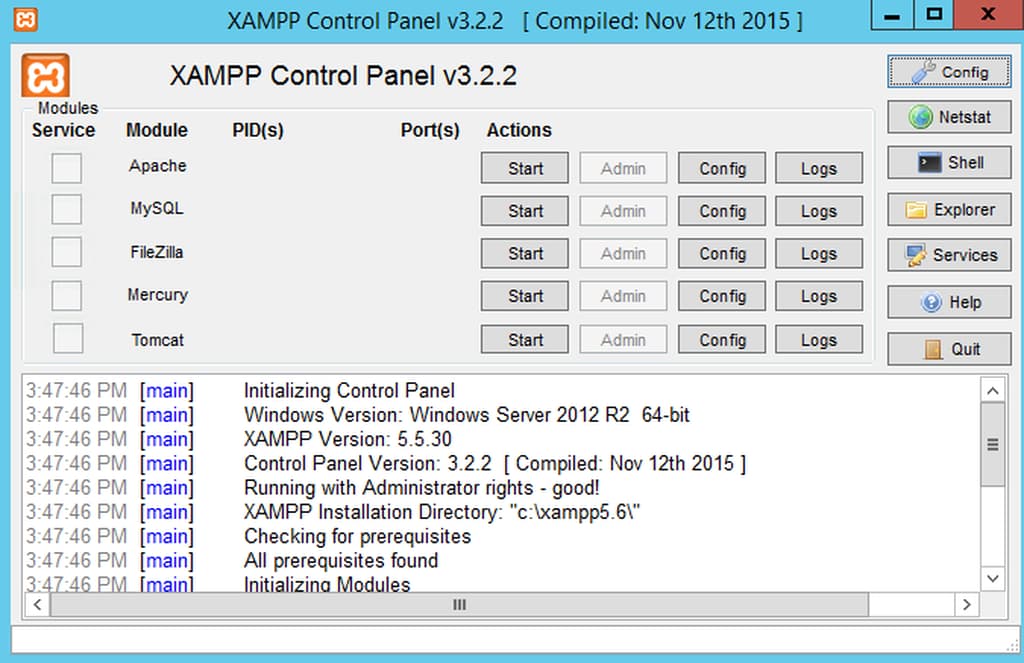Did you mean to access XAMPP? Click on the following link.
localhost / XAMPP Software Bundle
XAMPP (Apache Friends) is a free and open-source cross-platform web server solution stack package.
XAMPP (Apache Friends) is a free and open-source cross-platform web server solution. XAMPP is a very easy to install Apache distribution for Linux, Solaris, Windows, and Mac OS X. The package includes the Apache web server, MySQL, PHP, Perl, a FTP server and phpMyAdmin.
XAMPP Quick Summary
A quick XAMPP feature summary:
- Free
- Flexible
- Multi-platform
- Easy installer
- Easy to configure
- Easy to use
- Control panel
- Graphical UI
- Cross-platform
- Access logs
- Create alias
- Use VirtualHost
- Webserver+Database stack
XAMPP In the Eyes of Others
XAMPP (Apache Friends) is a free and open-source cross-platform web server solution stack package developed by Apache Friends, consisting mainly of the Apache HTTP Server, MariaDB database, and interpreters for scripts written in the PHP and Perl programming languages. Since most actual web server deployments use the same components as XAMPP, it makes transitioning from a local test server to a live server possible. Wikipedia
XAMPP is the title used for a compilation of free software. The name is an acronym, with each letter representing one of the five key components (Apache, MySQL/MariaDB, PHP, Perl). The software packet contains the web server Apache, the relational database management system MySQL (or MariaDB), and the scripting languages Perl and PHP. The initial X stands for the operating systems that it works with: Linux, Windows, and Mac OS X. IONOS
XAMPP Features and Highlights
The main XAMPP features and highlights are:
- XAMPP provides a quick developement environment solution.
- XAMPP is regularly updated to incorporate the latest releases of Apache, MySQL, PHP and Perl
- XAMPP also comes with a number of other modules including OpenSSL and phpMyAdmin
- Self-contained, multiple instances of XAMPP can exist on a single computer
- XAMPP instance can be copied from one computer to another
- Once XAMPP is installed, it is possible to treat a localhost like a remote host by connecting using an FTP client.
- XAMPP provides support for creating and manipulating databases in MySQL and SQLite among others.
- XAMPP supports different platforms (Linux, Windows, MacOSX)
Other XAMPP Suggested Ports
Common ports that might be used to access XAMPP are:
- Access XAMPP on port 80:http://localhost:80/xampp
- Access XAMPP on port 8080:http://localhost:8080/xampp
- Access XAMPP on port 8888:http://localhost:8888/xampp
- Access XAMPP on port 8890:http://localhost:8890/xampp
- Access XAMPP on port 8889:http://localhost:8889/xampp

